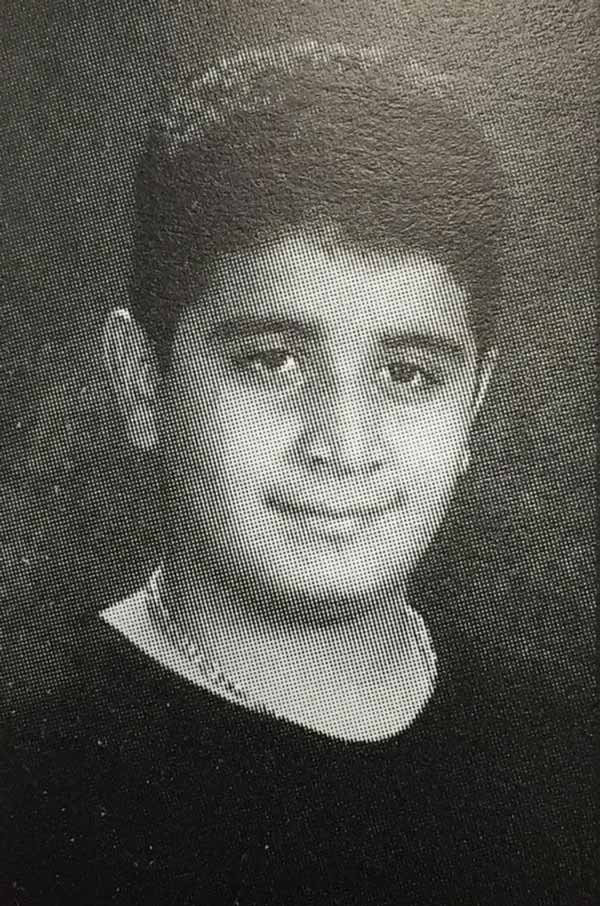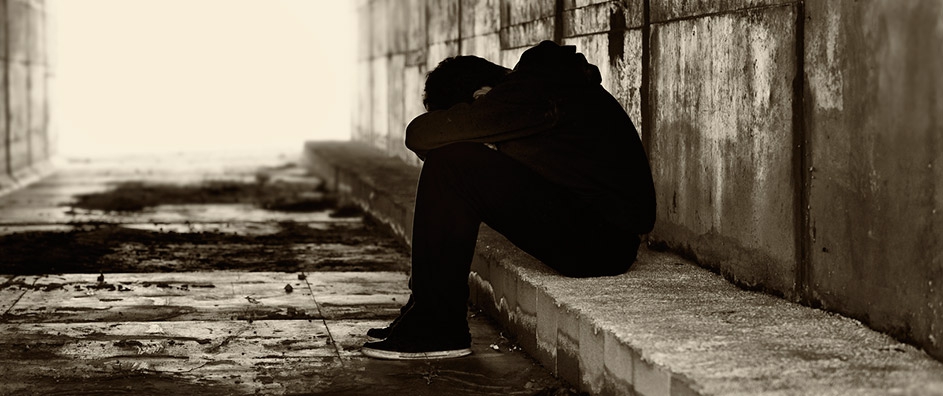The views expressed in our content reflect individual perspectives and do not represent the authoritative views of the Baha'i Faith.
Have you noticed that terrorism begins at home? Many mass killers start out by abusing their own families—which may have begun when they themselves were abused.
Omar Mateen—the terrorist who killed and wounded more than a hundred people at the Pulse nightclub in Orlando, Florida on June 12, 2016—had a history of domestic violence as an adult, and even violence at school as a young child. Here’s a portion of his wife’s account of his abusive, controlling, paternalistic behavior:
Mr. Mateen’s brief marriage to Sitora Yusufiy seems to fit this model. She has said that he forced her to hand over her paychecks to him, forbade her to leave the house except to go to work, and prevented her from contacting her parents. Even small perceived infractions were met with a violent response.
“He would just come home and start beating me up because the laundry wasn’t finished or something like that,” Ms. Yusufiy told The Washington Post. – Amanda Taub, Control and Fear: What Mass Killings and Domestic Violence Have in Common, The New York Times, June 15, 2016.
Several journalists reported that Mateen had a very troubled childhood—that even as a young boy he often became unpredictable, angry and threatening:
William Winkler, 30, of Orlando was a classmate of Mateen’s at Mariposa Elementary, where his mother taught Mateen in fourth and fifth grades.
Winkler recalled Mateen taking other kids’ toys and acting like a bully, especially toward girls. Winkler said that Mateen acted superior to others and that teachers had great difficulty with him. “I do remember the teachers at the school wanting to get him help desperately, as he was just such an angry kid,” said Winkler, who remembered Mateen having few friends. He was not sure whether Mateen was ever diagnosed with any learning difficulties but remembers him frequently requiring one-on-one tutoring with teachers.
“My mom tried to speak with his parents about him being angry, but they were very dismissive,” Winkler said ….
Mateen’s father was called and came to pick him up. “I remember his dad walking up,” the classmate said. “And in the courtyard in front of everyone, the dad slapped him right across the face.” – Troubled. Quiet. Macho. Angry. The Volatile Life of the Orlando Shooter, by Kevin Sullivan and William Wan, The Washington Post, June 17, 2016.

Omar Mateen’s freshman yearbook photo, in 2001, from Martin County High School in Stuart, Florida.
Domestic violence—against spouses and children—often follows this same obvious pattern. The abuser, who was almost always abused himself as a child, seeks to control every aspect of his victim’s life, or in the case of mass murder, to express his tremendous anger and need for revenge by taking as many lives as possible. That’s why experts have begun using a new name for family violence: “intimate terrorism.” The intimate terrorist uses verbal abuse, threats and violence as a means of enforcing paternalistic control over family members—because that’s what he learned as a child.
Researchers from Everytown for Gun Safety analyzed F.B.I. data on mass shootings from 2009 to 2015—and found that 57% of the cases also victimized a spouse, former spouse or other family member.
The Baha’i teachings have specific recommendations for eradicating intimate terrorism. First, the Baha’i Faith forbids physical or even verbal abuse of family members:
It is not, however, permissible to strike a child, or vilify him, for the child’s character will be totally perverted if he be subjected to blows or verbal abuse. – Abdu’l-Baha, Selections from the Writings of Abdu’l-Baha, p. 125.
For a man to use force to impose his will on a woman is a serious transgression of the Baha’i Teachings. – The Universal House of Justice, 1992, Violence and Sexual Abuse of Women and Children.
Second, the Baha’i Faith calls for a new era in family and community dynamics—“a fundamental change in the manner in which people relate to each other”—which means that every human being has the absolute right to be free from the fear of intimate terrorism:
… the principle of the oneness of mankind is described in the Baha’i Writings as the pivot round which all the Teachings of Baha’u’llah revolve. It has widespread implications which affect and remould all dimensions of human activity. It calls for a fundamental change in the manner in which people relate to each other, and the eradication of those age-old practices which deny the intrinsic human right of every individual to be treated with consideration and respect.
Within the family setting, the rights of all members must be respected.
Consultation has been ordained by Baha’u’llah as the means by which agreement is to be reached and a collective course of action defined. It is applicable to the marriage partners and within the family, and indeed, in all areas where believers participate in mutual decision-making. It requires all participants to express their opinions with absolute freedom and without apprehension that they will be censured or their views belittled; these prerequisites for success are unattainable if the fear of violence or abuse is present. – Ibid.
Third, and maybe most important, the Baha’i teachings focus on unity, not only in each individual family but in the entire human family, through the removal of hostility and dissension from the world:
Consider the harmful effect of discord and dissension in a family; then reflect upon the favors and blessings which descend upon that family when unity exists among its various members. What incalculable benefits and blessings would descend upon the great human family if unity and brotherhood were established! In this century when the beneficent results of unity and the ill effects of discord are so clearly apparent, the means for the attainment and accomplishment of human fellowship have appeared in the world. Baha’u’llah has proclaimed and provided the way by which hostility and dissension may be removed from the human world. – Abdu’l-Baha, The Promulgation of Universal Peace, p. 229.
















Comments
Sign in or create an account
Continue with Googleor